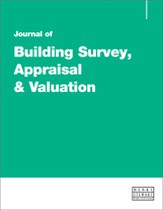Whole estate approaches to the retrofit of traditional buildings
Abstract
The UK has the oldest homes in Europe; 22 per cent of English homes were built before 1919.1 It is often said that older buildings are leaky, cold and inefficient but using modern materials and approaches on traditional buildings can actually decrease energy efficiency and cause severe damage over time. There is plenty of evidence that shows that traditional homes can be some of the most energy-efficient buildings when a knowledgeable and skilled approach is taken along with using compatible measures and traditional materials. Our everyday heritage must be valued in order to retain older buildings and protect our streetscapes for future generations. It is also important to find ways to reduce emissions and use less energy. To achieve both of these laudable objectives better ways to improve energy efficiency must be found, while avoiding damage to older buildings caused by installing inappropriate measures. The National Trust believes that a more considered approach to retrofitting will help reduce performance gaps, use less energy and bring affordable warmth to tenants while increasing people's appreciation of our everyday heritage. Led by good conservation practice and building physics, and guided by skilled practitioners, the National Trust takes a value-based approach to its retrofit. Using its 10-year, 5,000-property let estate programme to show what is possible, its aim is simple: to deliver high quality, affordable retrofit of traditional buildings, with good thermal performance in a way that is economically comparable to other modern retrofit approaches, and to inspire others to follow.
The full article is available to subscribers to the journal.
Citation
Lloyd, James (2015, October 1). Whole estate approaches to the retrofit of traditional buildings. In the Journal of Building Survey, Appraisal & Valuation, Volume 4, Issue 2. https://doi.org/10.69554/XPVV9783.Publications LLP
